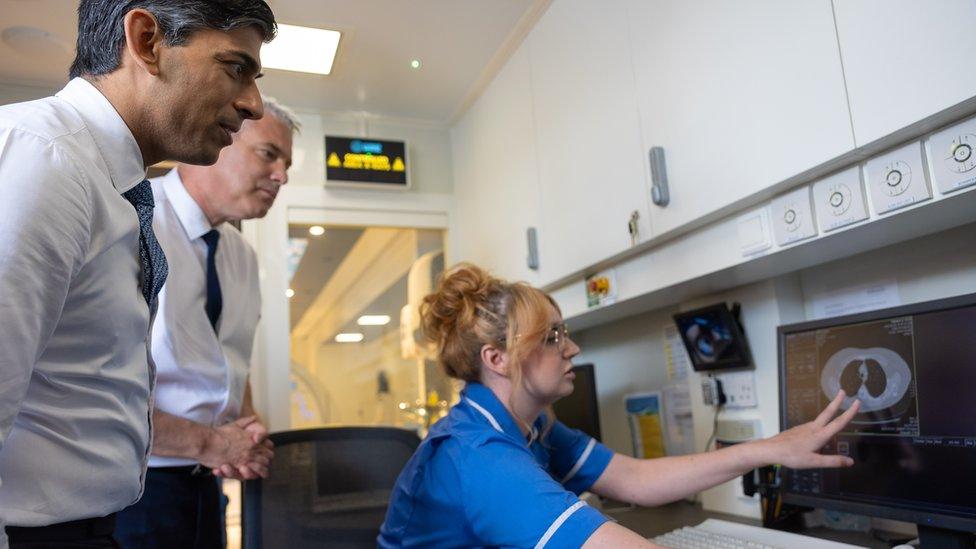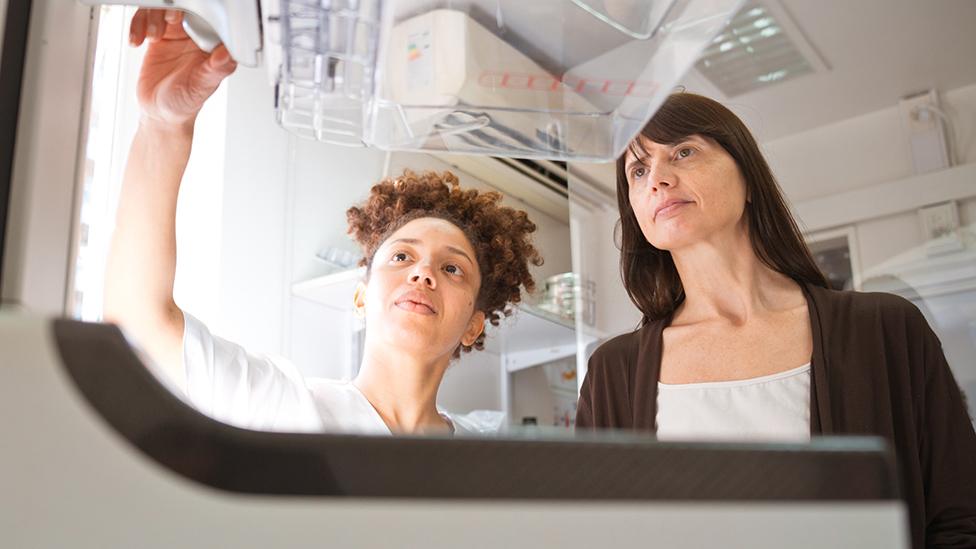Cancer: Almost three million tested in England
- Published

Rishi Sunak at a lung cancer screening programme in Nottingham in June 2023
Almost three million people were seen for an urgent cancer check over the last 12 months, according to new analysis from NHS England.
The number being tested has increased by more than a quarter compared with the same period before the pandemic.
The government says catching the disease early is crucial to improving survival rates.
But cancer charities say other targets are being missed and many patients are waiting far too long for treatment.
The new analysis shows a record 2,980,258 people in England received an urgent cancer check between November 2022 and October 2023.
The number being tested was up by around 5% on the previous year and 26% on the same period in 2018-2019 before Covid.
An increase in urgent referrals from GPs has been linked to a number of factors including:
A rise in cancer rates as the UK population gets older
More people putting off care during the pandemic who are now coming forward
A wider increase in awareness attributed to publicity campaigns and high-profile cancer cases

Urinal mats with cancer messaging are being introduced in thousands of public toilets, NHS England has said
The NHS has been sending mobile trucks to shopping centres and supermarket car parks to check the lung health of people in the community, while new cancer awareness messages have been displayed in places like pub toilets and on underwear packaging.
More than nine-in-10 people who are sent for an urgent referral by their GP will receive an all-clear with only around 6% going on to be diagnosed with the disease.
Dame Cally Palmer, national cancer director for NHS England, said: "We know there is more to do, but we have been throwing everything we have at catching cancers earlier because we know it's the best way to save lives - and we are seeing progress with more people than ever before being diagnosed at stage one and two."
Treatment backlog
The figures show that while a record number of people were tested in England in October, more than 78,500 - or 29% - had to wait longer than the four-week target to then find out if they had cancer.
NHS services across all four nations of the UK have been consistently missing targets for treating the disease.
In England in October 2023, 63.1% of patients started treatment within two months of an urgent referral, well under the 85% target and below the 64% recorded in October 2022.
Minesh Patel, head of policy at Macmillan Cancer Support said: "Despite best efforts from NHS staff, the lack of support from the UK governments has left cancer services under immense strain and people living with cancer paying the price.
"Politicians, what are you waiting for? We need to see greater funding and support for the cancer workforce, both now and in the future."
Health minister Andrew Stephenson said survival rates across all types of cancer had been improving but the health service needed to go "further and faster".
"The UK government is growing the cancer workforce, has carried out over five million additional tests in its 141 community diagnostic centres since June 2021, and is introducing a new law to stop those who turned 14 in 2023 or younger from ever being legally sold tobacco," he added.
Related topics
- Published30 November 2023

- Published28 November 2023
